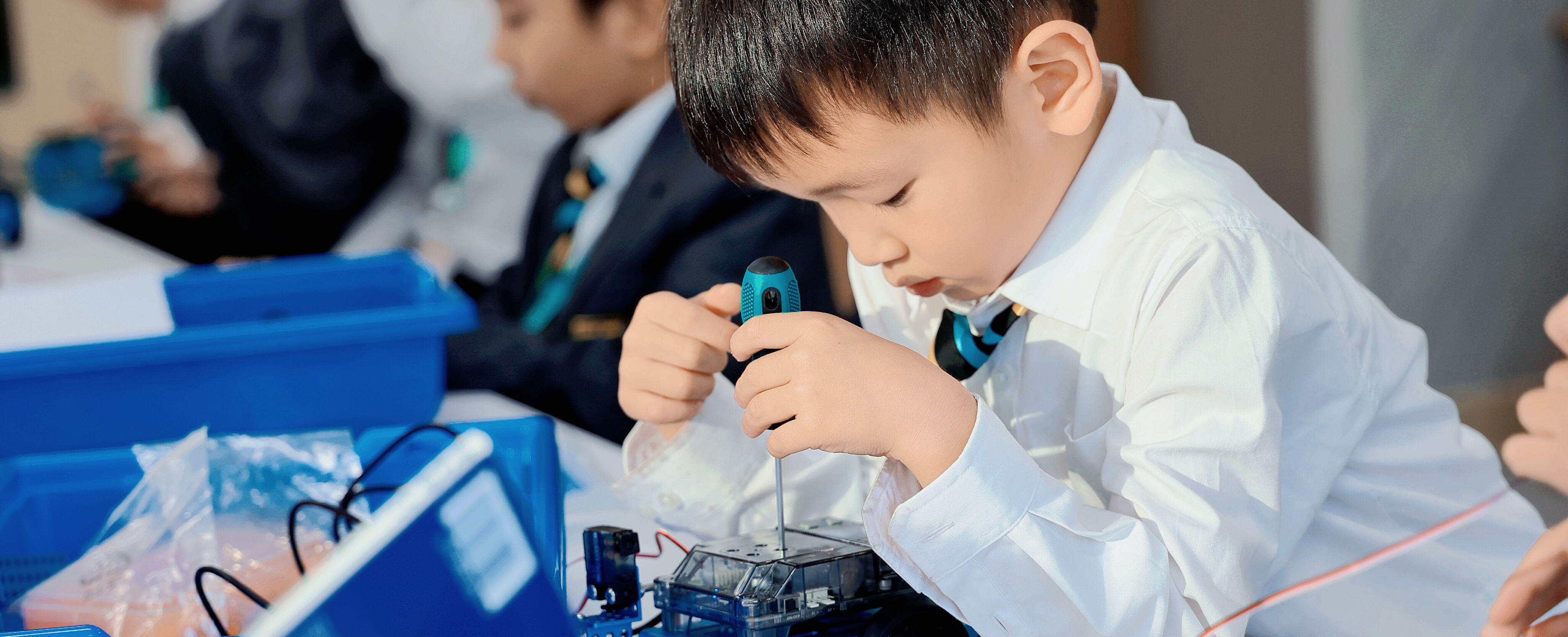
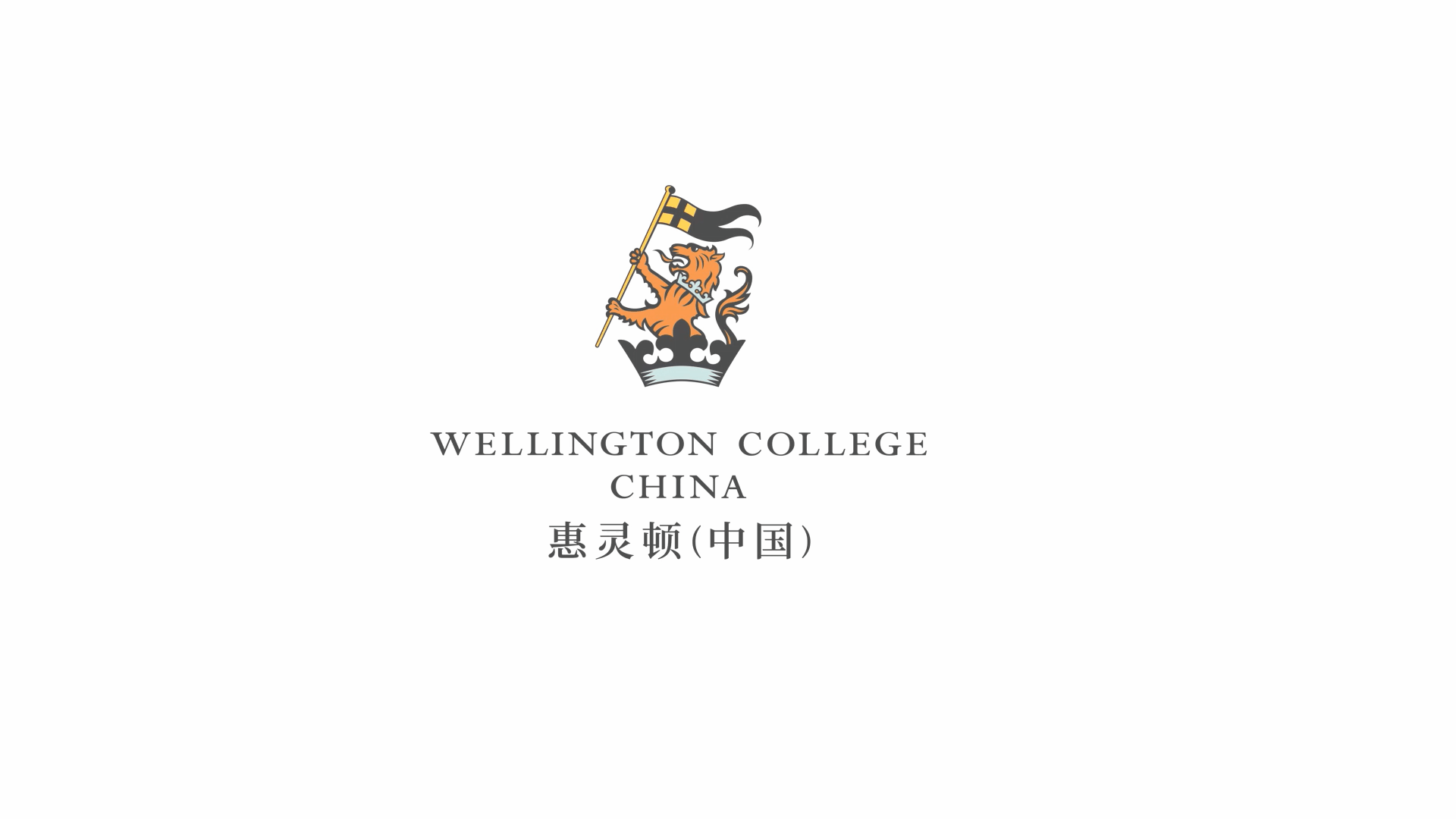
September marks the beginning of another school year. All nine schools under Wellington College Education (China) have now reopened after the summer break, and we are once again welcoming our pupils back into the Wellington Family.
Our frontline teachers have done a tremendous amount of work to ensure the successful reopening of all our schools, and our academic teams have worked together to guarantee that education quality across the board remains excellent. The hard work and dedication displayed by School Masters cannot be understated; their education ethos and personal commitments have a direct influence on the quality of our schools. As this academic year is now well underway, we spoke to our Masters in Tianjin, Shanghai and Hangzhou to see how they are preparing for the year ahead.
// What are the Masters of Wellington College Education (China) like?
// What expectations do they have for their schools and their pupils in the new year?
// This year’s pandemic has presented parents with many new challenges when it comes to selecting schools – what advice do our Masters have for parents ahead of school admission season?
// And lastly, what insights do they have about the future of education?
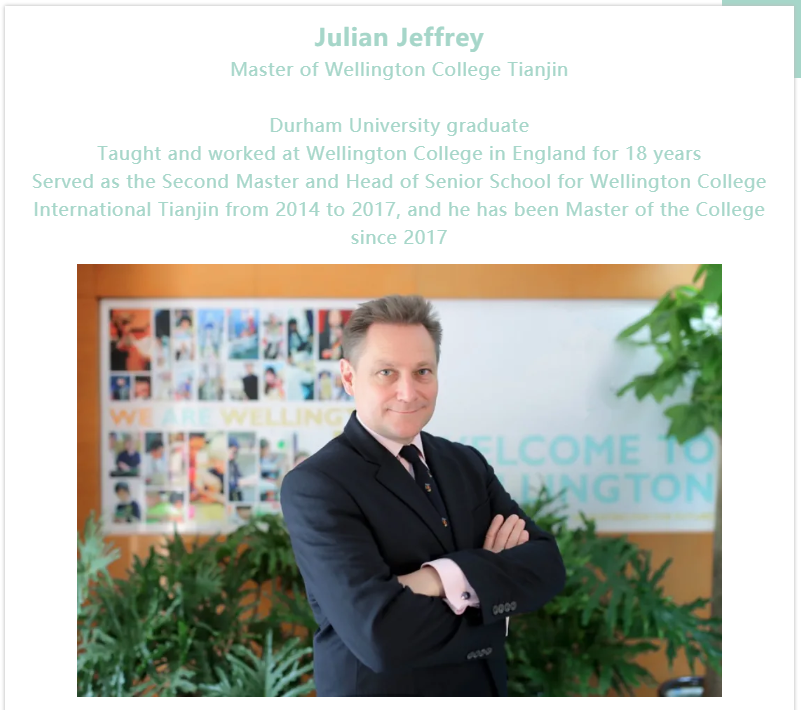
Wellington College in England launched a strategic partnership with Wellington College Education (China) in 2009 and founded Wellington College Tianjin in 2011. Wellington College International Tianjin is the first school founded by Wellington College China, and it is also Wellington College’s first overseas school.
Wellington College Tianjin initially offered a programme for international pupils only, but in 2014, they established Wellington College Bilingual A Level Centre to deliver an authentic British education to Chinese high school pupils who wished to study abroad for university. In 2017, Wellington College Bilingual Tianjin Nursery was established. The establishment of Wellington College Bilingual Tianjin Nursery meant that more Chinese children have been able to receive our quality bilingual education without having to travel overseas.
Q
Can you briefly introduce your education background and professional experience? What inspired you to work in the international education sector?
I have been a teacher throughout my adult life. I enjoyed my own time at school, and studying history at university was always about more than just seeking a gateway to a commercial career. I wanted to be able to talk about the subject I loved almost every day, and the most obvious route from there was into teaching. I was privileged to teach and work at Wellington College in England for 18 years. In 2013, I came to Wellington College Tianjin to facilitate a cooperation and exchange project with Wellington College in England. In 2014, I became the Master of Wellington College Tianjin.
Becoming a teacher was not something I planned for as I grew up. There are no teachers in my family, and my father was very surprised when I told him of my plans to train as a teacher. In fact, he said he thought I would last just six months in my first job before I got fed up and tried something else. But teaching has made me. Working with lively young minds has given me a sense of purpose and fulfilment that I had not found in other opportunities, and it has rewarded me with a career rich in new opportunities, challenges and great fun. I have never really wanted to do anything else.
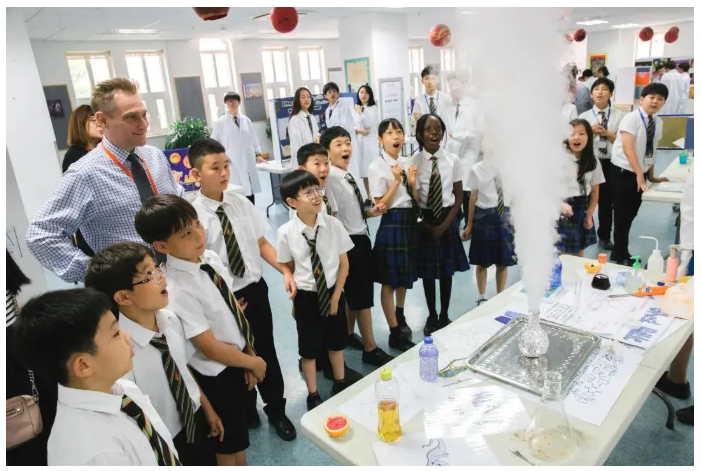
You worked for Wellington College in England for 18 years before joining Wellington College Tianjin six years ago. With reference to your 24 years of experience, what do you think are the primary characteristics of a Wellington education?
At Wellington we talk a lot about the importance of a child’s intrinsic motivation. In Western educational thinking, it is regarded as perhaps one of the most powerful signals of academic success. This poses the risk that parents and teachers see its expression – so profoundly personal – as somehow unchangeable. In other words, they theorise that a child’s level of intrinsic motivation is inflexible, and something that no amount of work can change. I see this as too gloomy a view. Of course, children can develop and grow their intrinsic motivation, but it often takes the care, insight and skill of a great teacher (or parent) to draw this out. In this regard, Wellington’s education makes a difference; it makes a real effort in helping its pupils realise their potential.
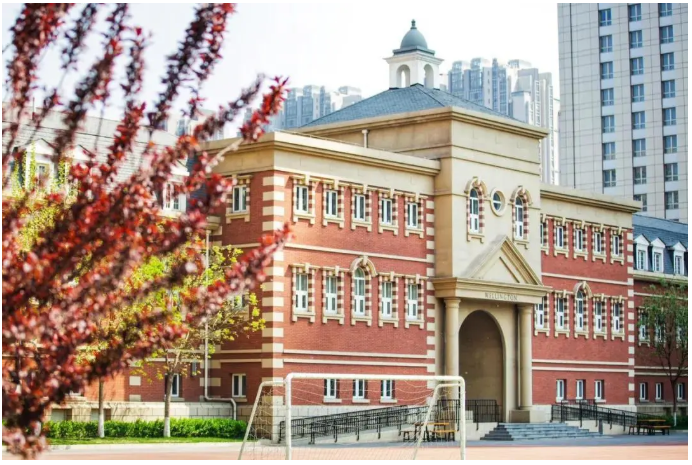
In your role as the leader of Wellington College Tianjin, what do you hope to see from our Wellington pupils?
I hope that pupils from Wellington College Tianjin can inherit the good traits from their Wellington College in England peers and become successful learners themselves.
This year, our pupils have achieved the school’s best ever results for their GCE A-Level and IGCSE exams: 31% of grades achieved were A*; 74% of grades achieved were A*-A; and 95% of grades achieved were A*-B. Our pupils’ success shows the entire community what can be achieved with hard work, a resilient spirit and the enduring support of skilled teachers.
I hope that our pupils can grow into young adults with great resilience, compassion, independence and confidence. I hope that they can bring positive changes to the world, and I hope that they will carry with them the characteristics that encompass what we know as the Wellington Identity - Inspired, Intellectual, Independent, Individual and Inclusive.
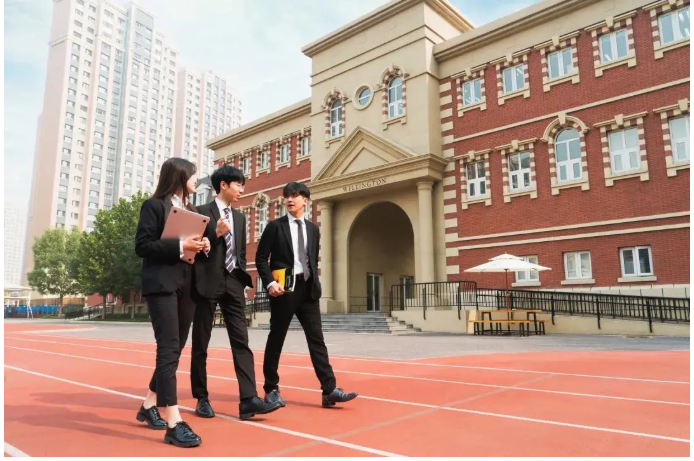
A new round of pupil admission is fast approaching. This year’s pandemic has presented parents with many new challenges when it comes to selecting schools – what advice do you have for parents in this situation?
Schools and their families exist in a shared community. The unprecedented nature of this pandemic means we each have a responsibility to support one another. We are very lucky in Tianjin in that we have a community that maintains open, respectful and trusting mutual relationships between home and school. In this way, the uncertainties and threats which may accompany the pandemic can be overcome through dialogue, hard work and cooperation. If you, as a parent, feel that your child’s school is struggling to respond to the fallout from Covid-19, always seek an open engagement with the school leaders as a first step – this can help avert any misunderstandings.
When helping children select a school, I recommend that parents find a place that treats their child as an individual; one that listens to you as a parent and that gives a voice to its pupils at all levels. Make sure you take the time to visit and meet some of the key staff – not just the head teacher. Try and arrange a visit during term time so that you can see and feel how the school operates when it is busy. Schools are very different places at weekends or during holidays. Finally, think about what the school represents in terms of its overall education: Wellington, for example, places its five core values at the centre of our community life. Parents who fully subscribe to a school’s values will have a more fulfilling experience during their child’s time at that school.

Hiba Academy Shanghai and Hiba Academy Shanghai are situated in the international business district of Qiantan in Pudong, Shanghai. Hiba Academy Shanghai was founded in 2017, and Hiba Academy Shanghai in 2018. Both schools are dedicated to delivering immersive bilingual education to Chinese pupils. From nursery through to primary school, junior school and high school, Hiba Academy Shanghai and Hiba Academy Shanghai support their pupils on their journeys to completing the International Baccalaureate Diploma Programme.
Hiba Academy Shanghai and Hiba Academy Shanghai’s missions are the same: to be the best bilingual schools for pupils to learn and develop skills under the ethos of holistic education. Both schools are dedicated to equipping pupils with the necessary skills and knowledge to further their studies at universities overseas.
Q
Can you briefly introduce your education background and professional experience? What inspired you to work in the international education sector?
From the time that I first began working in the international education industry through to now, I have witnessed the rapid development of international and bilingual education in China. During the last decade, I held a position in an international school in Shanghai and became the Founding Principal of three bilingual schools. It was my dream to transition from international education to bilingual education.
I had always hoped to combine the best of Chinese and international education. I am a big advocate for enriched horizons and inclusivity in education, so for children in China to be able to benefit from a traditional Chinese education and simultaneously reap the rewards of an international education – I am very pleased. Their future is oriented outward; these children are bestowed with the responsibility of connecting China with the rest of the world and fostering mutual understanding between these places. Equipping our children with the necessary skills to succeed has become a shared mission for people of my generation.

What expectations do you have for this school year?
This year we are welcoming more than 20 new international and Chinese teachers into the Hiba academic team, including Ms Kulas, Founding Head of High School, and Ms Pietsch, Head of Primary, who has over 20 years of school management experience. I believe these two appointments will strengthen our team and help us achieve even greater goals.
Our teaching staff have an average of 10 years' experience, and the ratio of Chinese to international teachers remains equal. Among our new international teachers, 60% come from the United Kingdom, with others coming from Ireland, Australia and elsewhere in the world. We have formulated a detailed training plan to make sure they are well prepared in advance of the new academic year.
As we begin our third year at Hiba Academy Shanghai, we are pleased to welcome nearly 200 new families to our community. The Hiba Family is a positive, inclusive and harmonious community bound together by the Hiba values – Courage, Integrity, Respect, Kindness and Responsibility. With the help of our current teachers and support staff, we hope that our new arrivals will quickly settle in to their new surroundings.
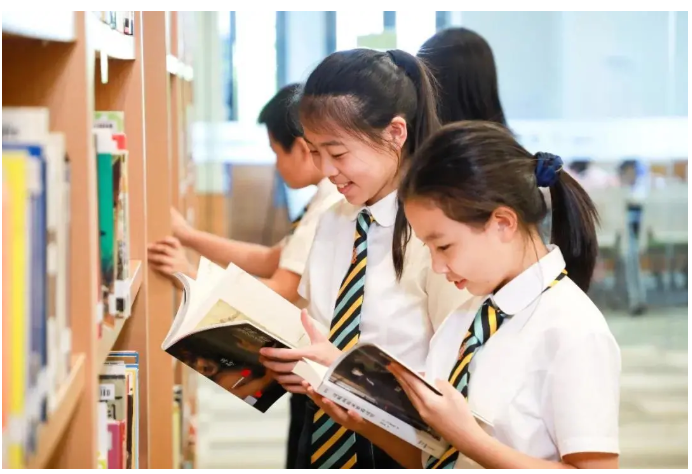
A new round of pupil admission is fast approaching. This year’s pandemic has presented parents with many new challenges when it comes to selecting schools – what advice do you have for parents in this situation?
One of Charles Dickens’ famous quotes, “It was the best of times, it was the worst of times,” aptly describes the current state of international education in China. Helping children choose an education pathway that will provide them with best opportunities in the future must be a near-constant preoccupation for many parents.
Helping children select the right school for them is an important and difficult decision for all families. In making this decision, I believe it is crucial that parents choose the school that best suits their children’s individual needs. Parents should use this time to assess their hopes and dreams for their children, and reflect on what they know about their interests, strengths and weaknesses.
After taking into consideration their goals and the child’s own talents, parents can then begin to look for the most suitable school for them. Hiba Academy Shanghai is a bilingual school; we hope to see our pupils exploring all facets of themselves and their talents, and we hope to see them becoming brilliant bilingual learners.
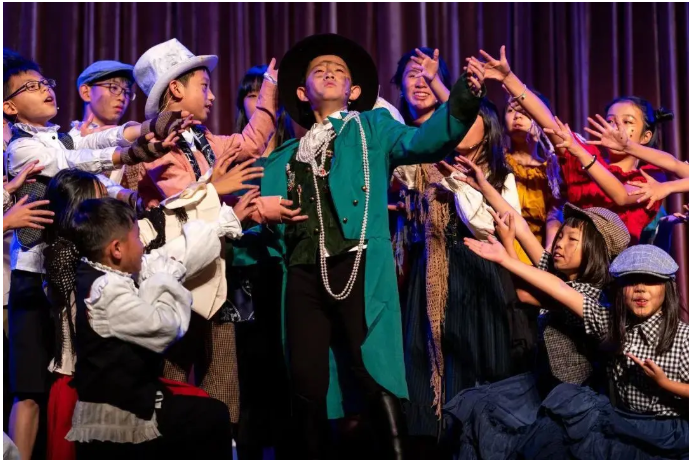
What insights do you have about the development of education in the future?
One day the pandemic will be a thing of the past, and education will continue – as it always has. When the health of our communities ceases to be our primary concern, educators will be able to dedicate more time to the continuous development and self-realisation of their pupils.
The pandemic has allowed online learning to develop at an unprecedented rate. The unique advantages offered by digital education resources have given us a preview of an innovative new ‘Internet + education’ model. This is an exciting development, but we also need to consider how this new approach to education can best align with the values and significance of traditional schooling.
The time and effort Hiba Academy Shanghai has invested in developing a system for education in the digital era has not been in vain. With the support of our Information Technology department, we were able to optimise our education resources and ensure that all pupils received personalised learning support throughout our period of eLearning earlier this year. Information Technology has allowed us to adjust our teaching based on our pupils’ needs, and this which has certainly made our teaching more ‘intelligent’.
Hiba Academy Shanghai cares about the continuous development of our pupils. A sustainable education plan provides opportunities for quality, long-term growth. We take care of the short-term and long-term growth of our pupils, and we hope to help them achieve their life goals.

Founded in 2018, Wellington College Education (China) - Hangzhou comprises Hiba Academy Hangzhou, Hiba Academy Hangzhou and Wellington College International Hangzhou. Wellington College Education (China) - Hangzhou provides first-class international education to Chinese pupils aged 2 to 18. It regards holistic education as its ethos and upholds the same values as its Wellington sister schools.
Hiba Academy Hangzhou received its accreditation from Council of British International Schools at the beginning of its second academic year – a truly remarkable achievement. It was assessed as outstanding in over 25% of the criteria.
Q
Can you briefly introduce your education background and professional experience? What inspired you to work in the international education sector?
My father was an English teacher and my mother was a music teacher, but it was never my intention to follow the same profession as my parents. That was the case right up until the day my father invited me to come to his school and help him in his class – that experience transformed my thinking and my subsequent life.
My father was an excellent teacher. He was clear, direct, passionate and inspiring. The children in his care loved being in his lessons; they were learning new skills, concepts, and knowledge but they also knew that they were respected and appreciated. I was amazed that there was a job out there that could hold such importance and relevance to others.
I entered the world of international education in 2002, when I became the Head of a well-established international school in Japan. Since then, I have worked as a Head, Principal and Master at schools in Libya, Slovakia, Japan (again), Malaysia, and I am now the Executive Master of Wellington College Education (China) - Hangzhou in China. Why did I take on this career? Quite simply, I married a Japanese lady and we wanted our own children to have an international educational experience.

You have held headships and leaderships in many countries. What insights do you have about the difference between education in China and other countries? Can two separate educational philosophies be successfully combined?
There are many differences – less so in the actual curriculums than in the style of teaching. The approach can be very different between teachers, partly because of culture and partly because of expectations. Our aim is always to bring the very best teaching pedagogy from both the East and the West and to combine – and subsequently improve – this until it suits our pupils the best.
The integration of Chinese and Western education is done primarily through the curriculum we teach. At Hiba School Hangzhou, for example, we ensure that that all the Learning Objectives from the Chinese National curriculum and Zhejiang Province Guidelines are covered, yet we also focus on covering the best content and breadth of skills from the National Curriculum for England and the International Primary Curriculum. On paper that sounds fairly easy, but in reality, it is highly complex and it has taken us several years to perfect the merging of these curriculums.
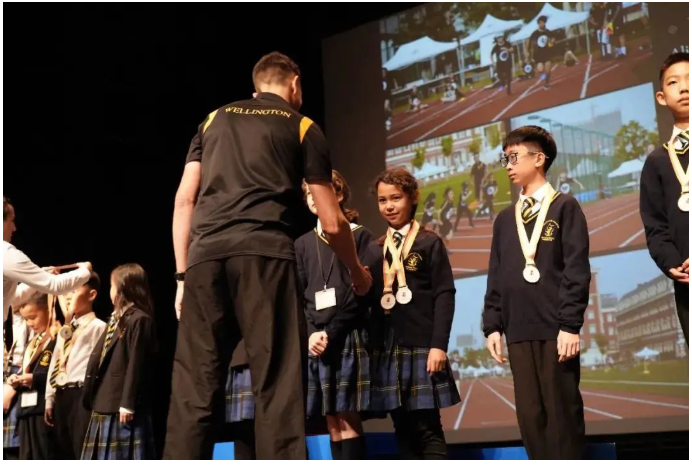
What expectations do you have for this school year?
This year marks the third academic year of all three schools within Wellington College Education (China) - Hangzhou. 1,350 eager and excited pupils are keen to get back to normality after the upheavals of the past months.
What will our pupils see as they enter (or re-enter) Wellington College Education (China) - Hangzhou? The first thing might be the improvements and ongoing developments to the physical campus and the continuation of projects that were already underway before the long break.
What else will they notice? Perhaps most importantly – new staff! With increased enrolment and a move towards more specialised teaching as the pupils get older, we have been delighted to welcome a range of experienced, skilled and highly motivated new academic and non-academic staff to our school teams.

A new round of pupil admission is fast approaching. This year’s pandemic has presented parents with many new challenges when it comes to selecting schools – what advice do you have for parents in this situation?
To visit the school is essential. Spend some time there, ask questions and get a feel for what the school is all about. Parents need to find out if the school is the right one for their child and they must be prepared to disagree with other views if they feel they are not justified. Every child is different. What is it that parents hope their child will get out of their education in a particular school? Is it a route to a good university? Is it happiness? Is it emotional development and adherence to values being followed more closely? Is it language development? An opportunity to encounter a host of new experiences? Hopefully it is all of these things and more. Parents need to find a school that they believe can deliver all of these things comprehensively and in complement to each other.
The pandemic may have disrupted many of our plans, but we must remain calm and think ahead. It is easy to panic and assume this situation will last for a long time, but I do not believe that is the case. Covid - 19 will end and there will be a bigger demand for creative, independent, passionate and inquisitive learners than ever before. This is precisely the time when a Wellington/Hiba education means the most.

What insights do you have about the development of education in the future?
I think we have to learn from the pandemic and how we, as a school, coped so well during that time. The lessons we learned from eLearning were enormous – much of what we learned can be embraced and reused as we move forward (e.g. educational podcasts, summer transition videos, live lessons for pupils not in Hangzhou, etc.).
As the world changes around us, being ‘agile educators’ has always been the Wellington way. We are not set in a belief that there is only one way we can educate, instead we understand that change is an inevitable and necessary element of providing a sustainable education for our pupils. What direction the education industry will take is difficult to gauge, but I do know that our teachers and non-academic staff have already shown themselves capable of taking on and rising to any challenge with skill and determination.
